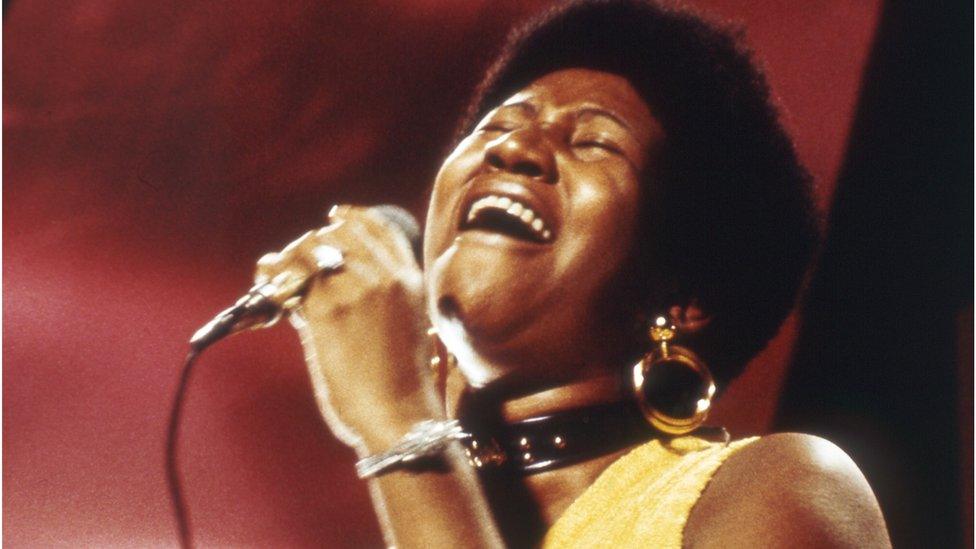Aretha Franklin: The sound of the civil rights movement
- Published
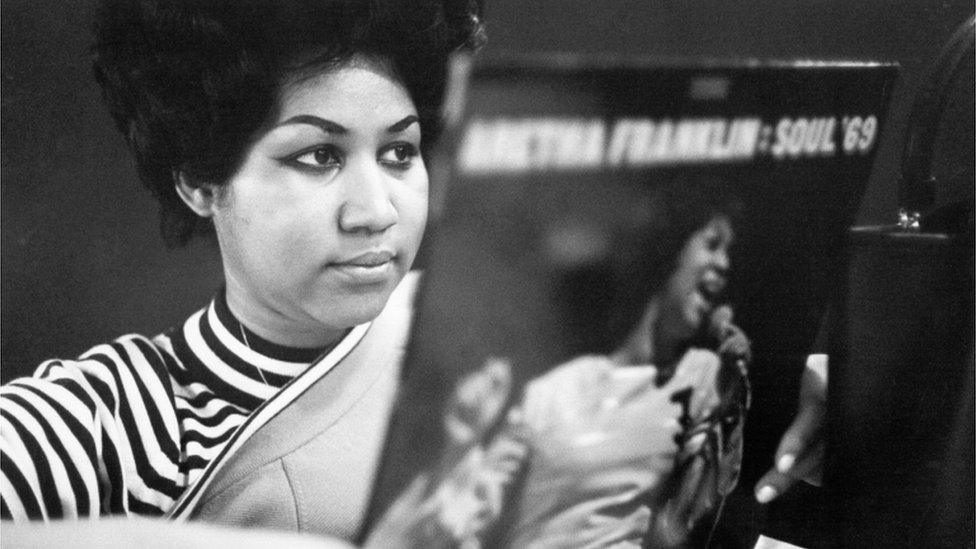
Aretha Franklin holds a copy of her Soul 69 album in New York City
Aretha Franklin grew up in 1950s Detroit, surrounded from childhood by the now-famous faces of the civil rights movement. Her songs would become their anthems.
Her Baptist minister father was the organiser behind the 1963 Detroit Walk to Freedom - the largest-ever demonstration for civil rights in the US until the March on Washington later that year, when the Reverend Martin Luther King Jr made his "I have a dream" speech.
King was a frequent guest in her father's home.
At 16 years of age, Franklin went on tour with him, just after recording her first album.
She would sing at King's funeral a decade later.
King's daughter, Dr Bernice King, called Franklin, external a "shining example" of how to use the arts to support social change.
"As a daughter of the movement, she not only used her voice to entertain but to uplift and inspire generations through songs that have become anthems."
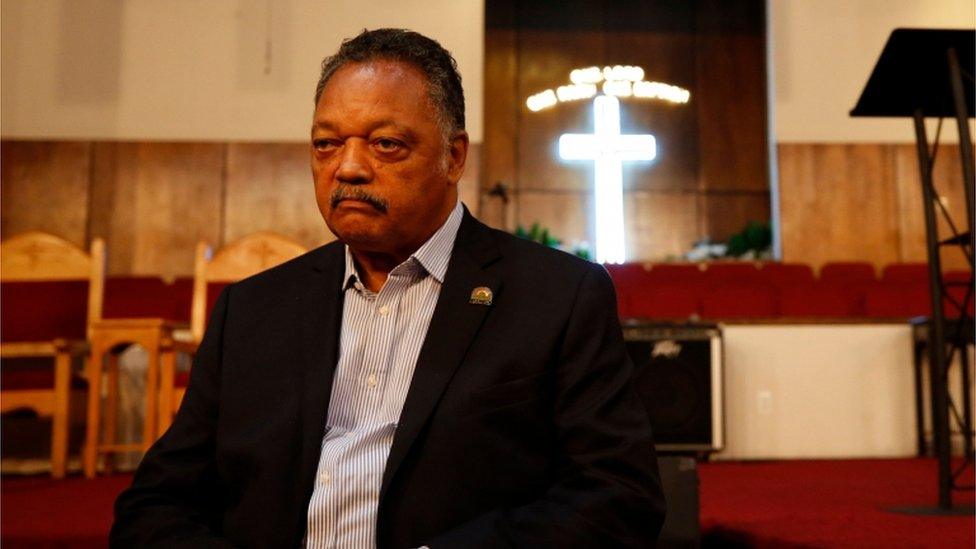
Civil rights activist Rev Jesse Jackson had been friends with Aretha Franklin for more than 60 years
1967's Respect became the anthem of the civil rights campaign and the feminist movement. Franklin told Elle magazine, external in 2016 she was "stunned" by its success.
"It was the right song at the right time," she said.
As she rose in popularity, Franklin did not abandon her sense of activism. She told Elle her contract in the 1960s included the clause that she would never perform for a segregated audience.
Civil rights activist Reverend Jesse Jackson - who was Franklin's friend for over 60 years - told USA Today, external she helped pay for many civil rights tours and campaigns while King was alive.
She held free concerts, housed activists and helped them fundraise. Jackson called her "an inspiration, not just an entertainer".
"She has shared her points of view from the stage for challenged people, to register to vote, to stand up for decency," he said.
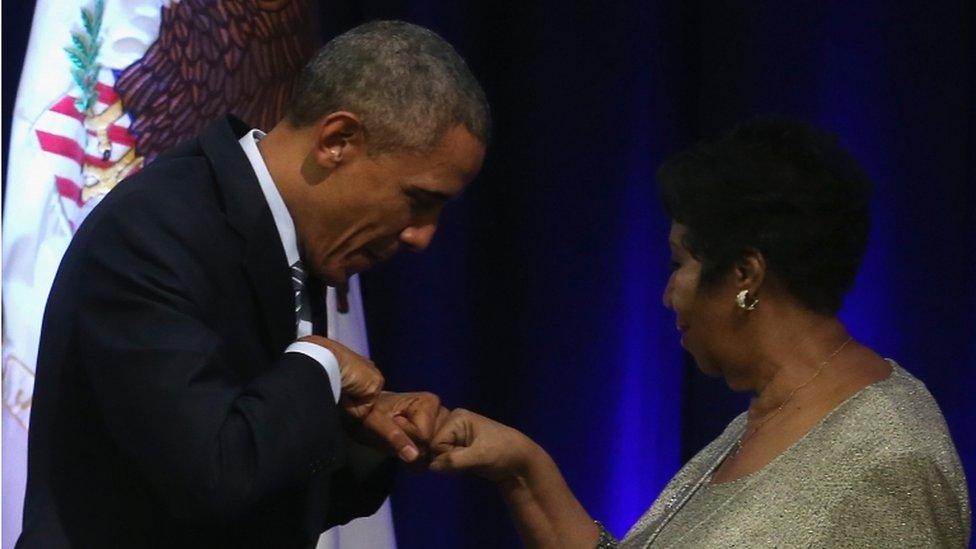
Aretha Franklin shared a special relationship with the Obamas
The Queen of Soul remained a prominent face - and voice - for African American civil rights throughout her life.
In 2015, President Barack Obama said: "American history wells up when Aretha sings."
"Nobody embodies more fully the connection between the African-American spiritual, the blues, R&B, rock and roll - the way that hardship and sorrow were transformed into something full of beauty and vitality and hope."
Allow X content?
This article contains content provided by X. We ask for your permission before anything is loaded, as they may be using cookies and other technologies. You may want to read X’s cookie policy, external and privacy policy, external before accepting. To view this content choose ‘accept and continue’.

Following news of her passing, tributes to her work with the civil rights movement have been widely shared on social media.
Fellow activist Reverend Al Sharpton called her a "civil rights and humanitarian icon".
Allow X content?
This article contains content provided by X. We ask for your permission before anything is loaded, as they may be using cookies and other technologies. You may want to read X’s cookie policy, external and privacy policy, external before accepting. To view this content choose ‘accept and continue’.

The National Association for the Advancement of Colored People (NAACP) said her music would inspire people for generations.
Allow X content?
This article contains content provided by X. We ask for your permission before anything is loaded, as they may be using cookies and other technologies. You may want to read X’s cookie policy, external and privacy policy, external before accepting. To view this content choose ‘accept and continue’.

Allow X content?
This article contains content provided by X. We ask for your permission before anything is loaded, as they may be using cookies and other technologies. You may want to read X’s cookie policy, external and privacy policy, external before accepting. To view this content choose ‘accept and continue’.

Civil rights leader and Congressman John Lewis said what made Franklin so great was "her capacity to live what she sang".
"Her music was deepened by her connection to the struggles and the triumphs of the African American experience," he said in a statement.
"She had a lifelong, unwavering commitment to civil rights and was one of the strongest supporters of the movement.
"She was our sister and our friend."
- Published16 August 2018
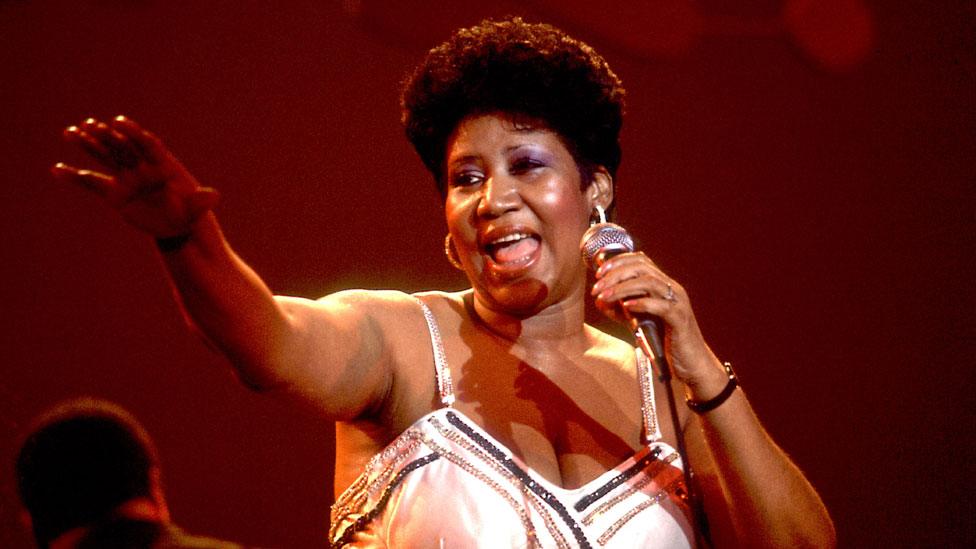
- Published16 August 2018
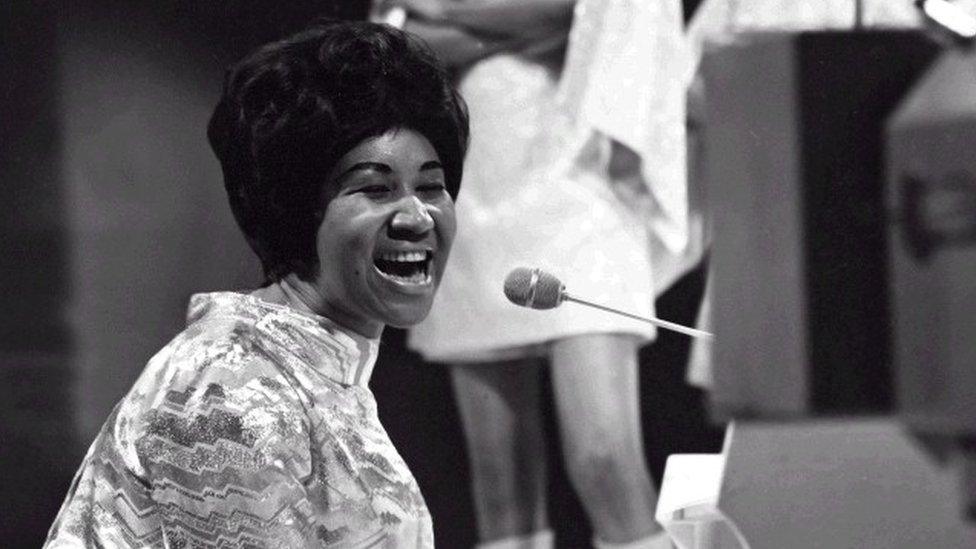
- Published16 August 2018
